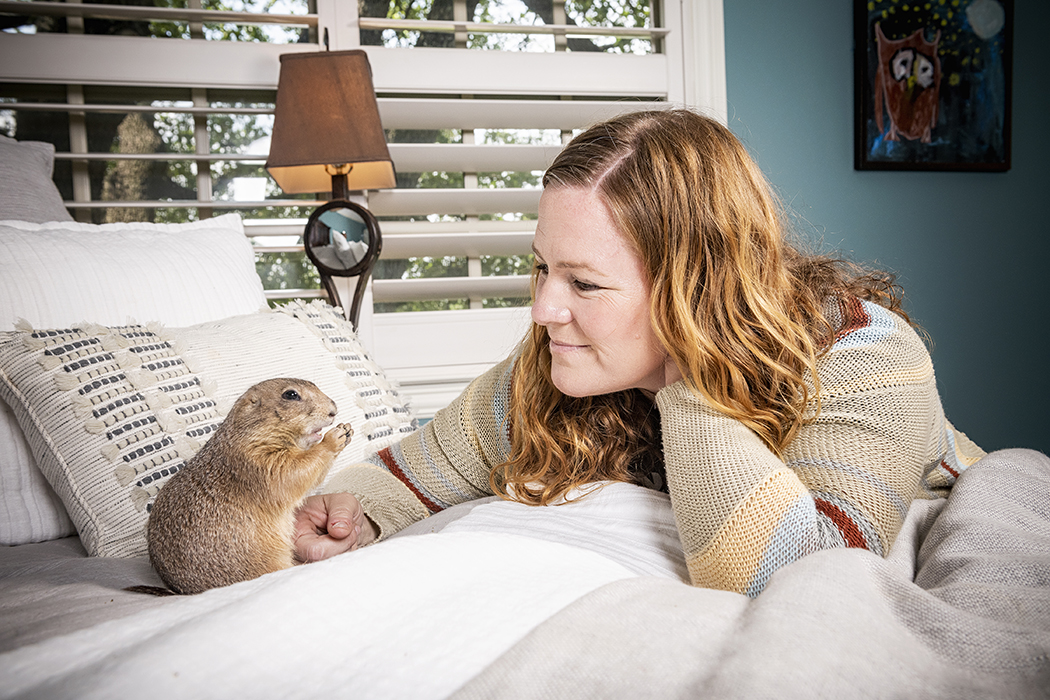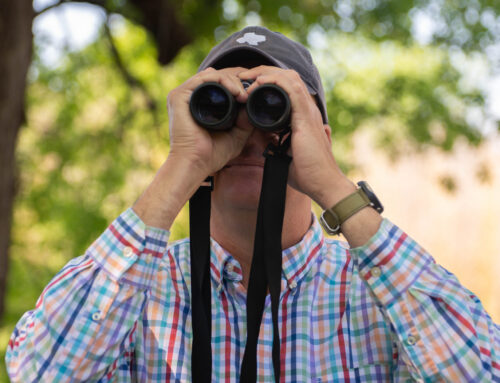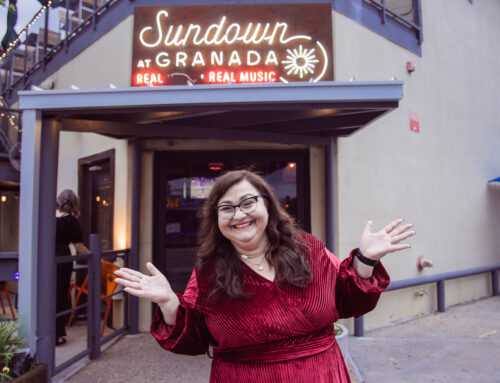
Photo by Danny Fulgencio
It’s been four years since Lakewood Hills neighbor Shelby Bobosky left a lucrative law practice. Her reasons were twofold: to focus on her young sons and to use her law expertise to help animals.
Bobosky serves on the board of Texas Humane Legislation Network, a state-based animal organization that addresses animal welfare laws. Its goal is to stop animal abuse and cruelty before it starts.
Bobosky’s role as president of the board is no mere title. She’s all action, logging thousands of miles across Texas from Longview and Lubbock to Corpus Christi.
A lifelong animal lover, she was fresh from the bar exam and practicing civil litigation when she joined the Dallas Association of Young Lawyers’ animal welfare committee. Though not allowed to advocate, the group organized successful fundraisers for rescue organizations like the Society for the Prevention of Cruelty to Animals and Operation Kindness. They also helped Dallas Animal Services with adoption events geared toward young professionals.
Bobosky enjoyed her work with the committee. “But I came to the realization that we cannot rescue our way out of the overpopulation crisis,” she says. “We need to change the archaic laws that are out of step with modern times.” Her thinking broadened beyond local issues. “I learned that we shouldn’t focus on local ordinances when we can effectuate real change for thousands of animals by passing a statewide law.”
The issue Bobosky was first involved in was banning the use of gas chambers to euthanize shelter animals. “I couldn’t imagine such a terrible death for a dog or cat who ended up in a shelter through no fault of its own,” she says. “THLN helped end gas chamber euthanasia in 2013, and I was hooked.”
It’s important to note that the network is not an enforcement agency, such as animal control or the Humane Society. It should not be contacted with reports of abuse or neglect — unless it’s a last resort. “There are so many misunderstandings and interpretations of laws by animal control officers, law enforcement and even sheriffs,” she says. Just last year, Bobosky and others intervened when they received word of a sheriff who thought it was legal to allow a horse to starve to death. In fact, it triggered the animal cruelty statute.
Bobosky and team have also written letters advising local governments of potential laws they are breaking with events in their towns, such as donkey tripping and selling puppies for charity.

Photo by Danny Fulgencio
The work has its challenges. Bobosky recalls a contentious meeting with a district attorney in east Texas who yelled at her throughout. Although the network has helped pass strong animal welfare laws, prosecutorial discretion sometimes allows those laws to not be enforced. “The DA would not bring a cruelty case after a convicted felon admitted to beating a dog to death with a claw hammer.”
Changing statewide law is not the simplest of tasks. During this interview, Bobosky received word that after six years of working on a bill — which banned chains as a means of restraint for dogs — it had been killed by a representative who used a parliamentary procedure.
But the work goes on. Besides meeting with officials over animal abuse and neglect cases, Bobosky helps respond to the hundreds of calls that flood the network’s phone line each month. She also travels the state attending advocacy meetings. She meets with animal rescuers, shelter workers and grassroots activists. Her goal is to keep them motivated and educate them about working with legislators.
But she says the most rewarding moments have come in her role as an educator to children. She works on a project to supply humane books to local school libraries in ZIP codes that have high rates of animal abuse and neglect. The goal is to teach children about the humane treatment of animals. “There is a well-documented link between childhood cruelty to animals and violent behavior as an adult,” she says. “Our hope is that humane treatment will lead to the development of empathy, which we know can be taught at a young age.”
Bobosky passes along this wisdom to her own children, three boys under the age of 10. They help with her projects, write letters to legislators and volunteer. They also care for their own menagerie: Homer, a 16-year-old beagle mix rescue, and Peter and Emily, two prairie dogs rescued from Houston.
“Teaching kindness to animals through our children will lead to a humane tomorrow,” Bobosky says.
For more information, visit thln.org.





